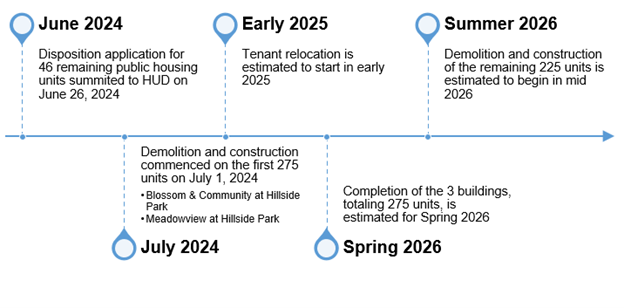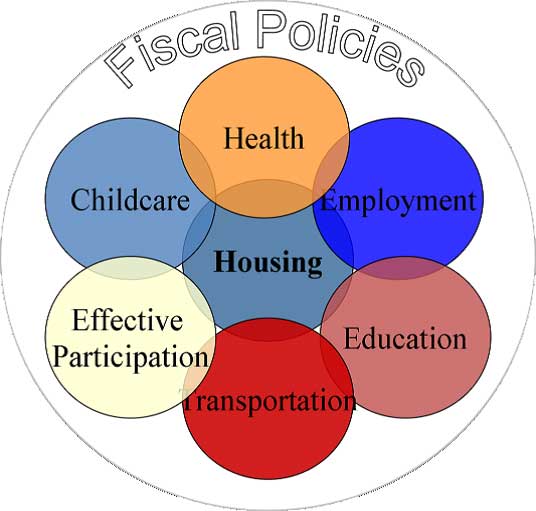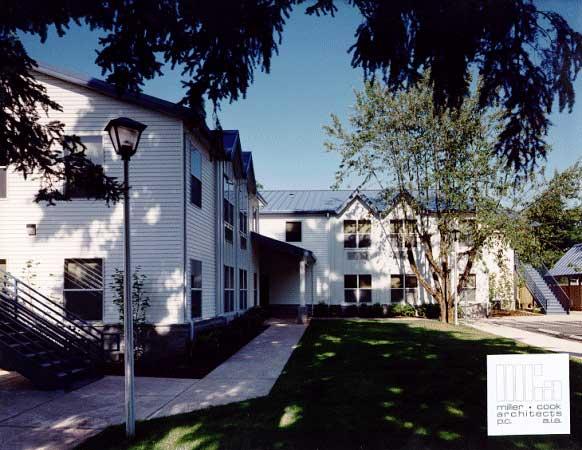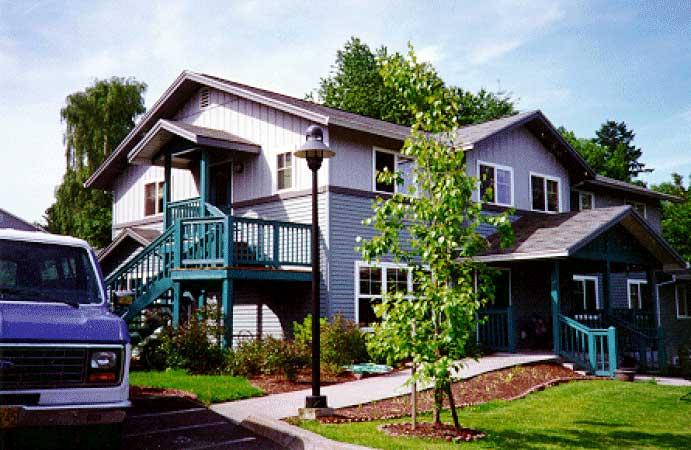Clackamas Heights
The Park Place Redevelopment is an equity-centered effort to breathe new life into Clackamas Heights, one of Oregon’s oldest public housing communities. Owned and operated by the Housing Authority of Clackamas County (HACC) since the 1940s, the 16-acre site in Oregon City’s Park Place neighborhood is ready for a new chapter.
The site will be transformed into a vibrant, mixed-income community featuring 200 modern, affordable homes designed for households of all sizes and backgrounds. Just two miles from downtown Oregon City, the redevelopment will also bring new green spaces, improved infrastructure, and shared amenities, all shaped by the voices and vision of residents and the community.
Discover the Story of Clackamas Heights
Clackamas Heights has been shaped by the people who live here, and now, you can explore its story in a whole new way. The Clackamas Heights StoryMap brings together memories, milestones, and a look at what’s coming next.
Approximate Redevelopment Timeline
(as of September 2025)
- Summer 2024: Application submitted to the U.S. Department of Housing and Urban Development (HUD).
- Late 2024: HUD approval received; HACC applied for Section 8 Tenant Protection Vouchers (TPVs).
- Early 2025: HACC began tenant relocation with Section 8 Voucher Assistance.
- Fall 2025: Estimated financial closing and start of construction.
Relocation
All residents who are displaced will receive a Section 8 voucher and relocation assistance from the Housing Authority. A moving specialist will work with every household long before the relocation date to find replacement housing. In addition, financial assistance to cover moving expenses, security deposits, and other fees will be provided. All displaced residents will be given the choice to move to a new home at Clackamas Heights once the new construction is complete.
Meeting dates and information will be shared when available.
Meetings and Events
| 2025 | |
| May 19 4:30 p.m. to 6:30 p.m. | 2025 Open House for Park Place Redevelopment |
| Feb. 20 | Fall Resident Advisory Committee Meeting #3 |
| 2024 | |
| Dec. 12 | Fall Resident Advisory Committee Meeting #2 |
| Dec. 3 1 p.m. - 2 p.m. 6 p.m. -7 p.m. | Fall Resident Relocation and Section 18 Meeting |
| Oct. 3 | Fall Resident Advisory Committee Meeting #1 |
| June 5 5 p.m. to 7 p.m. | Open House for Park Place Redevelopment |
| April 10 | CAC Meeting #2 Summary and Survey |
| March 27 | CAC Survey and Summary |
| March 13 Noon to 2 p.m. | Community Advisory Board - Meeting #1 Presentation |
| Feb. 22 6 p.m. to 7:30 | Redevelopment Planning Resident Listening Session Presentation |
| Feb. 15 11 a.m. to 12 p.m. | Relocation Information / Q&A Meeting Q & A Summarized |
| Feb. 15 6 p.m. to 7 p.m. | Relocation Information / Q&A Meeting Q & A Summarized |
Contact
Please send your questions to: chredevInfo@clackamas.us
Housing Authority of Clackamas County Staff:
- Gloria LaFleur
971-930-3184
glafleur@clackamas.us
 Translate
Translate












